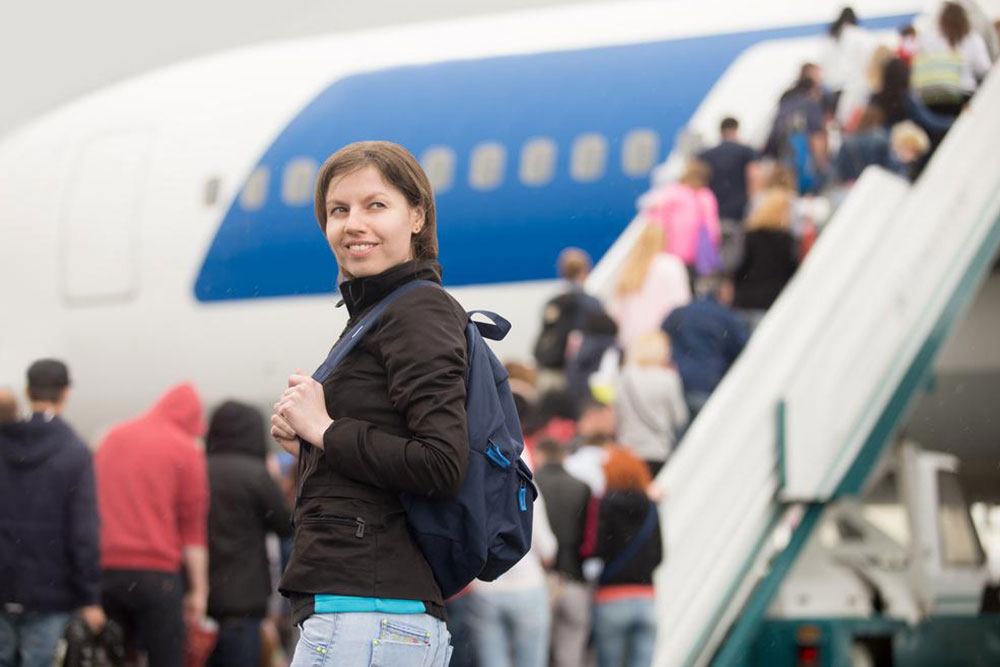Essential Tips to Avoid Common Mistakes When Planning a Spontaneous Vacation
Discover expert tips for planning a spontaneous vacation, avoiding common pitfalls like peak season travel, relying on limited reviews, and overspending on accommodations. Learn how to choose the best travel times, be flexible with plans, and make cost-effective decisions to ensure a memorable and stress-free getaway. This guide provides valuable advice on maximizing your budget, avoiding overbooking, and securing the best deals effortlessly for your spontaneous adventure.

Essential Tips to Avoid Common Mistakes When Planning a Spontaneous Vacation
Embarking on a spontaneous trip can be an exciting adventure, offering a break from routine and an opportunity to explore new destinations without extensive planning. However, even the most spontaneous vacation requires some strategic considerations to ensure it’s enjoyable and stress-free. While travel experts often emphasize the importance of booking flights and accommodations well in advance to secure the best deals, today’s digital landscape with countless online offers can tempt travelers into hasty decision-making and last-minute planning. Although last-minute travel is entirely feasible with proper planning, certain common pitfalls can undermine your experience and lead to unnecessary stress or unforeseen expenses. To make your spontaneous getaway truly memorable, it’s essential to understand and avoid these typical mistakes.
Choosing Travel During Peak Seasons: A Common Mistake for Spontaneous Travelers
One of the biggest mistakes spontaneous travelers make is misjudging the timing of their trip, especially when visiting popular destinations. Many attractions, cities, and regions have designated peak and off-peak seasons. Peak seasons often coincide with holidays, school vacations, or ideal weather conditions, which result in crowded sites and higher prices for accommodations, flights, and tours. Conversely, traveling during the shoulder or off-peak seasons can have significant benefits, including fewer crowds, more authentic experiences, and more affordable options for lodging and transportation.
For example, visiting beach resorts during the off-season, such as late autumn or early spring, can allow travelers to enjoy the serene environment without the usual throngs of tourists. Similarly, exploring European cities in late winter or early fall can mean lower prices and fewer tourists at iconic landmarks. Planning your spontaneous trip during these less busy periods is a smart move that can enhance your overall experience, providing a more relaxed and immersive environment.
Dependence on a Single Accommodation Recommendation: Risks and Solutions
In the age of online reviews and travel forums, it’s tempting to pick accommodations based on one or two glowing reviews. However, relying solely on a single recommendation can be risky, especially for spontaneous trips where time is limited and expectations are high. Hotel ratings can vary widely based on travel dates, specific guest experiences, and seasonal factors. An accommodation that was perfect during one stay may not be suitable for your specific plans, especially if your travel involves special occasions or specific needs.
The best approach is to review multiple sources, including hotel booking platforms, travel blogs, and social media feedback, to gather a balanced perspective. Pay attention to details such as location, amenities, cancellation policies, and guest comments related to cleanliness and service quality. Comparing options allows you to choose a place that aligns with your budget, preferences, and trip purpose, whether it’s a luxury hotel, a cozy bed-and-breakfast, or a budget-friendly apartment. This diligent research can significantly improve the quality of your spontaneous getaway by ensuring your accommodation meets your expectations.
Travel During Off-Peak Hours to Save Money and Avoid Crowds
Airfare pricing is dynamic and heavily influenced by the timing of your flight. Many travelers fall into the trap of booking flights during weekend peak hours when prices are typically the highest. To maximize savings, consider scheduling your departure during midweek days, such as Tuesdays or Wednesdays. Airlines often lower prices during these days to fill seats that remain unsold over the weekend. Additionally, for long-haul or international travel, connecting flights or choosing less conventional departure and arrival times can also reduce costs significantly.
Furthermore, traveling during off-peak hours—early mornings or late evenings—can lead to more comfortable airport experiences and less crowded planes or trains. Planning your departure and return flights carefully can help you stretch your travel budget, avoid unnecessary stress, and gain a more relaxed travel experience. This strategic planning is particularly beneficial when making spontaneous plans, as it allows you to make cost-effective decisions quickly.
Flexibility Is Key: Avoid Rigid Planning
While spontaneity implies flexibility, many travelers unknowingly fall into rigid planning, which can cause stress and limit enjoyment. Overplanning can make a trip feel restrictive, especially when unexpected delays or changes occur. To truly embrace spontaneity, keep your itinerary loose and adaptable. For example, instead of booking every activity in advance, identify key attractions you want to see and leave ample free time for unplanned discoveries.
This approach not only reduces pressure but also encourages immersion in the local culture and serendipitous experiences. For instance, you might stumble upon a lively street festival, a hidden café, or a scenic viewpoint that wasn’t on your original list. Flexibility in your schedule enables you to respond to weather changes, local recommendations, or your own mood, making your spontaneous trip more authentic and memorable. Remember that sometimes, the most cherished moments are unplanned.
Economic Accommodation Choices for Spontaneous Travelers
Accommodation expenses can rapidly eat into your travel budget, especially when booking at the last minute. Instead of opting for expensive hotels, consider affordable alternatives like serviced apartments, hostels, or vacation rentals. These options often provide more space and amenities at a lower cost, making them ideal for groups of friends or solo travelers looking to maximize value.
For spontaneous trips, platforms like Airbnb or Booking.com often feature last-minute deals and special discounts. Additionally, exploring local guesthouses or boutique hostels can offer a more authentic experience and personalized service. Budget-friendly accommodations not only save money but also free up resources that can be better spent on experiences, dining, or souvenirs. Remember to check reviews and cancellation policies, especially when booking on short notice, to avoid surprises or complications.
Be Cautious with Promotional Deals and Discounts
Online promotional deals, flash sales, and special offers are tempting options for last-minute travelers trying to stretch their budget. However, it’s crucial to read the fine print before making a booking. Promotional prices often come with restrictions such as non-refundable terms, blackout dates, or additional fees that can negate the advertised savings.
Furthermore, joining loyalty programs or email lists from trusted travel service providers can provide access to exclusive discounts, early-bird offers, and member-only benefits that are more reliable than generic flash sales. Always compare prices across multiple platforms and review cancellation or change policies to ensure flexibility. By exercising caution and strategic planning, you can enjoy significant savings without compromising quality or convenience during your spontaneous trip.





